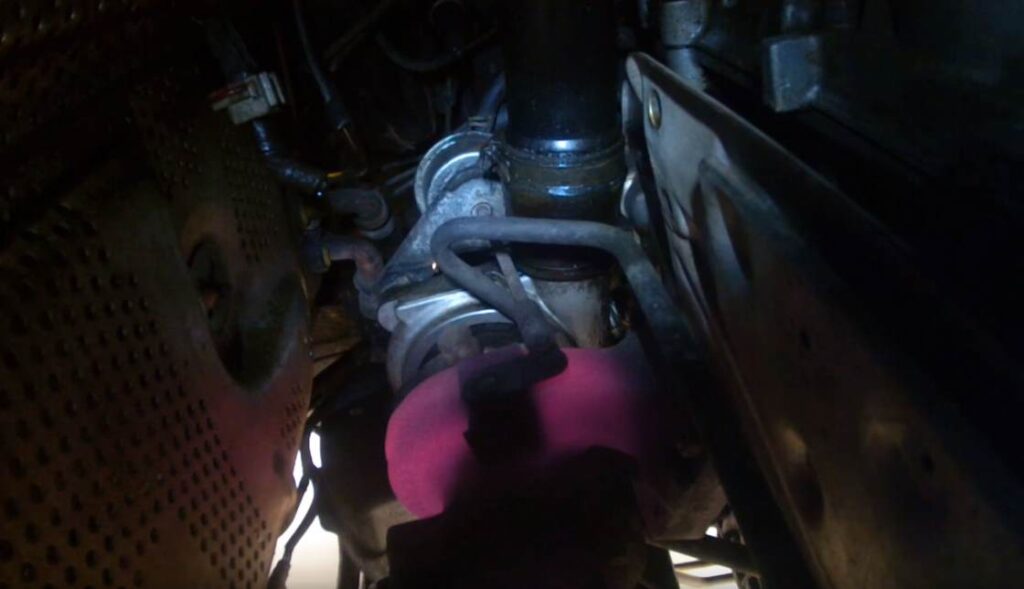It’s no secret that diesel engines require a bit more maintenance than gasoline engines. Because diesel engines produce abrasive and acidic soot which eventually ends up in the motor oil, regular oil changes are key to a healthy diesel engine.
I’m pretty sure that you’ve already heard about the benefits of synthetic motor oil for gasoline engines, but is full synthetic oil good for diesel engines?
What Are the Qualities of a Good Diesel Engine Oil?
In order to understand what is a good quality engine oil, you need to know which functions it should perform. Engine oil serves five main functions:
- Lubrication. Engine oil reduces friction between the moving parts of the engine by separating them with a film of oil.
- Cooling. Engine oil ensures even temperature of the internal parts.
- Cleaning. Packed with various additives, engine oil dissolves and neutralizes impurities, sludge, and acidic compounds, thus prolonging the life of the engine.
- Rust protection. Engine oil coats the metal parts of the engine with its rust and corrosion inhibiting properties.
- Gap filling. Creates a seal between piston rings and cylinder walls, which extends the life of the engine dramatically.
To effectively serve these functions, a good quality synthetic diesel engine oil should possess the following characteristics:
- Great soot and sludge cleaning properties.
- Ability to effectively neutralize acidic compounds created by the byproducts of combustion.
- Great thermal stability and resistance to thermal oxidation.
- Avoid damage to gaskets, rubber seals or any other internal parts.
- Provide a durable film of oil that prevents friction between internal parts. Special additives like molybdenum disulfide are often used in order to achieve this.
- Contain optimal viscosity characteristics at all temperatures to ensure effective lubrication of internal engine parts on cold startups and prevention of friction when hot.
- Great anti-foaming properties.
- Be slightly biodegradable.
Do Diesel Engines Need Different Synthetic Oils Than Gasoline?
Engine oils for gasoline and diesel engines have very different standards of quality, however, most engine oils today can be interchanged.
Because of this, it’s becoming harder to find engine oils that are only made for diesel or petrol engines. However, the biggest differences between oils are due to different engine designs and additional systems.
Engines with DPF (Diesel Particulate Filter), three-phase catalytic converters, and Common Rail injection systems need different engine oils. These differences should be the main reason when picking out the right engine oil for your car.
The combustion process in a diesel engine is different and it produces different chemical byproducts. Because of this diesel engine oils are packed with more additives per volume, mainly soot detergents that control soot buildup and oil acidity.
Advantages of Synthetic Diesel Engine Oils
At this point, it’s common knowledge among motorists that synthetic oil does a better job protecting against engine wear, especially for turbocharged diesel engines. A study by AAA found that synthetic engine oils performed almost 50% better than conventional oils on various tests.
Improved Engine Protection
Synthetic motor oils provide better engine wear protection. Since synthetic oil contains more consistently shaped molecules, a stronger and more durable fluid film is achieved, giving better protection against wear.
In addition to that, synthetic oils are more resistant to heat and less prone to viscosity loss – two very important features for diesel turbochargers.
Improved Protection at Cold Temperatures
Conventional oils contain waxes that thicken at cold temperatures. Not the case with synthetic oils – they don’t contain waxes and remain more fluid at cold temperatures. You want protection from friction in your diesel turbocharger and main bearings as soon as possible since studies show that most engine wear occurs in the first minutes of a cold startup.
Improved protection at high temperatures
The turbocharger in your diesel engine gets really hot under heavy acceleration and could reach a speed of 250,000 RPM and temperatures of 1000 oF. Shutting your engine off when the turbo is glowing hot can cook the oil inside the turbo, resulting in deposit buildup known as turbo coking. Deposits could obstruct the oil feed to the turbo and destroy it.

Conventional motor oils contain unstable and light molecules that vaporize in extreme heat. On the other hand, synthetic oils have much better heat resistance and are more suited for turbo diesel engines.
Improved HEUI Injection System Reliability for Powerstrokes
The oil in the Powerstroke engines with the HEUI injection system is subjected to more stress than average. Not only is the oil tasked with lubricating, cleaning, cooling, and rust protection, but it’s also pressurized to 3,600 psi.
Synthetic oil offers better resistance to thermal breakdown, slugging, and viscosity loss – very important features for high oil pressure systems.
So, Is Full Synthetic Oil Good for Diesel Engines?
It’s GREAT for diesel engines, especially turbocharged, Common Rail, and HEUI injection engines. Synthetic motor oil outperforms conventional oil in almost every aspect. It’s more stable and more durable and considering it costs just a few bucks more, there is no reason not to switch to synthetic.

Eddie is the co-founder of CarCareCamp.com, and the site’s primary contributor.
Under his belt, Eddie has a bachelor’s degree in Automotive Electronics Engineering and almost a decade of experience working as a semi-truck technician (specializing in electrics).

It’s good to know that diesel engine oil can protect from rust while also having anti-foaming properties. My uncle is thinking about getting an industrial diesel engine truck to help him tow stuff around on his farm. I’ll be sure to share this with him so he can see the possible benefits that he can get from it.